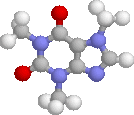

| Strona główna |
| Zespół |
| Badania |
| Aparatura |
| Seminaria |
| Publikacje |
|
Nasze konferencje |
|
Aktywność konferencyjna |
| Projekty |
| Programy |
|
Najbliższe wydarzenia |
| Linki |
| Kontakt |
|
|
|
od 2020-09-20 |

Authors: Kozak M., Lewandowska A., Ołdziej S., Rodziewicz-Motowidło S., Liwo A. |
Title: Combination of SAXS and NMR techniques as a tool for the determination of peptide structure in solution: conformation of the 28-43 fragment of the B3 domain of immunoglobulin binding protein G from Streptococcus |
Source: Journal of Physical Chemistry Letters |
Year : 2010 |
The biological activity of peptides is largely determined by their spatial structure in solution. Because of flexibility of these molecules, the NMR technique, commonly used to determine the solution structures, usually provides only the information of the local geometry of peptide chains. On the other hand, small-angle X-ray scattering (SAXS) gives interatomic distance distribution in the molecule, thereby defining the shape of a molecule. In this work we carried out a SAXS study of the 28-43 sequence fragment of the B3 domain of immunoglobulin binding protein G from Streptococcus, IG(28-43). We fitted the conformational ensembles obtained in our previous work by using the NMR-restrained molecular dynamics simulations to the distance distribution obtained from SAXS measurements. Only two clusters of conformations with shape bent in the middle out of 11, consistent with NMR data had nonzero statistical weights. Thus, SAXS and NMR provide complementary structural information and appear to be an excellent tool for peptide structure determination when combined. |
|
|
Zaktualizowano: podstrony 2025-12-13 / bazę danych: 2025-12-14 by Webmaster: Zbigniew Fojud